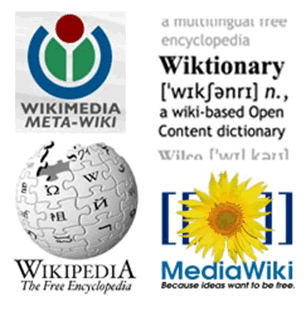The Internet, The Web and Electronic Commerce
Thursday, December 16, 2010
Being a form of modern age media, the Internet or the World Wide Web is definitely much more complexed than it appears to be. The web consists of many components that keeps it running the way it does. These components also make the lives of Internet users much simpler. The following are a few components of the web.
Javascript
Applets
An applet is a small application that carries out a specific task. Applets cannot operate on the own and are usually written in the Java programming language. Applets make web pages more interactive as well by displaying graphics, providing interactive games, presenting animation, etc.
Filters
Plug-ins
Plug-ins are software modules that add functions to a certain application. They are usually used in web browsers for certain functions such as playing videos and displaying files that cannot be supported by the web. However, some of these plug-ins must be installed before they can be used. Examples of common plug-ins today are Quick Time Player, Adobe Flash Player and Acrobat.
Internet security suites
An Internet security suite is a collection of softwares that keep the computer safe from any threat that comes from the Web. The security suites usually consist of tools such as antispyware, antivirus and firewall. Installing an Internet security suite would help prevent threats from viruses, identity theft and also the lost of important data. Examples of Internet security suites are McAfee's Internet Security and Symantec's Norton Internet Security.
File Transfer Protocol (FTP)
FTP is a protocol which allows files to be copied between a user's local system with any system on the network. The files are usually exchanged over a TCP/IP-based network. Files can also be renamed, moved or deleted using FTP.
Wiki
A wiki is a server software that allows a user to create and edit content on a web page. There is no single author on a Wiki. Instead, a community of people can gain access to the Wiki to share information. Wikis are sometimes known as content management systems. Wikis simplify tasks such as creating links, organizing sites and recording document history. An example of a website using the wiki software would be the well-known Wikipedia.org.
Uniform Resource Locator
The URL specifies the address of any particular file as every file on the Internet has its own address. URLs are divided into two parts. The first part known as the protocol identifier and the second part known as the resource name. The two parts are separated by a colon and two forward slashes (://). The main function of the URL is to identify a location for a particular document and specify a mechanism for accessing it.
Javascript
JavaScript can be known as a scripting language (lightweight programming language) on the Internet. Among the uses of Javascript is to give HTML( HyperText Markup Language) designers a programming tool. They make a web page more interactive. Other functions of Javascript include authenticating data and creating cookies in a computer. Cookies contain domain numbers and other information such as login names and pages that were previously visited.
Applets
An applet is a small application that carries out a specific task. Applets cannot operate on the own and are usually written in the Java programming language. Applets make web pages more interactive as well by displaying graphics, providing interactive games, presenting animation, etc.
Filters
Filters are software tools that monitor the viewing of contents in the web. They block access to selected sites. Among the common uses of Internet filters is to prevent children from viewing inapproriate content on the web at home or in educational institutions, keeping spam emails out from your inbox and preventing the display of unessecary sites whenever we use a search engine. Example of filters on the Internet are Anti-spam Filter, Bayesian Filter, Block List Filter, and Confirmation Filter.
Plug-ins
Plug-ins are software modules that add functions to a certain application. They are usually used in web browsers for certain functions such as playing videos and displaying files that cannot be supported by the web. However, some of these plug-ins must be installed before they can be used. Examples of common plug-ins today are Quick Time Player, Adobe Flash Player and Acrobat.
Internet security suites
An Internet security suite is a collection of softwares that keep the computer safe from any threat that comes from the Web. The security suites usually consist of tools such as antispyware, antivirus and firewall. Installing an Internet security suite would help prevent threats from viruses, identity theft and also the lost of important data. Examples of Internet security suites are McAfee's Internet Security and Symantec's Norton Internet Security.
File Transfer Protocol (FTP)
FTP is a protocol which allows files to be copied between a user's local system with any system on the network. The files are usually exchanged over a TCP/IP-based network. Files can also be renamed, moved or deleted using FTP.
Wiki
A wiki is a server software that allows a user to create and edit content on a web page. There is no single author on a Wiki. Instead, a community of people can gain access to the Wiki to share information. Wikis are sometimes known as content management systems. Wikis simplify tasks such as creating links, organizing sites and recording document history. An example of a website using the wiki software would be the well-known Wikipedia.org.
Uniform Resource Locator
The URL specifies the address of any particular file as every file on the Internet has its own address. URLs are divided into two parts. The first part known as the protocol identifier and the second part known as the resource name. The two parts are separated by a colon and two forward slashes (://). The main function of the URL is to identify a location for a particular document and specify a mechanism for accessing it.
-end-














